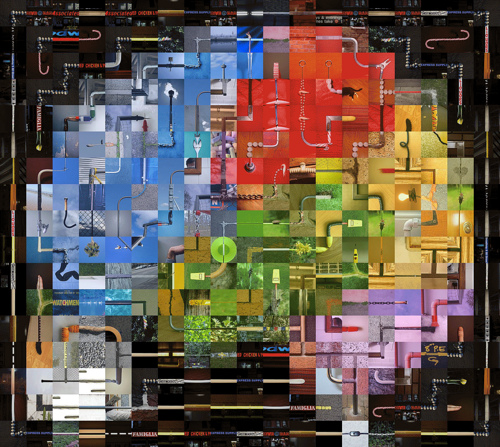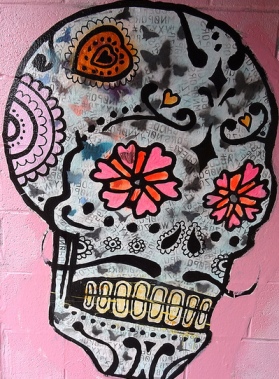Potential outcomes of brain injury including behaviour, cognitive, social, emotional.

Henry Meynell Rheam [Public domain], via Wikimedia Commons
For many of us there is a fascination, and often newsworthiness, about a person being in a state of perpetual sleep then waking sometime in the future. Think about the fairy-tale of ‘Sleeping Beauty’; the princess who sleeps for a hundred years, awakened by a kiss. Of course from a handsome prince. While the romance and mystery appeals to our imaginations, the reality is somewhat different. Quality life for a person living in an unconscious state can be less than optimal. Rather than living in a castle with all needs met, the person is likely to be in a hospital or care facility and may not be living a quality, meaningful life. Research is leading us to understand the state of unconsciousness better. As we gain a better understanding we hope it will improve the quality of life for people who are not able to explain their needs to us. Today a brief introduction. Looking at what it means to be…

Image by
Kai Schreiber via Flickr.com
Our strengths are also our weaknesses. So it is said. This could also be said of our remarkable brain. The way our brain is protected and fed can be seen as a strength, it keeps the brain operating as captain of our ship, the composer of the orchestra, the boss of the factory - yes our entire body. Our system for brain protection and nutrition can also be a weakness. Well several weaknesses really. Damage to the brain’s system for nutrition and protection can cause temporary or permanent brain injury. Brain Protection and Nutrition: When a Weakness Appears. We have looked at how the brain is fed and protected. Little imperfections in most of our body's function we can get away with. In the brain this can cause major chaos. Today we go behind the scenes to look at how damage or injury to the brain protection and nutrition systems can cause such chaos and damage to the brain. To help…
Difficulty learning new things after brain injury. Finding it hard to take in new skills and information. Having difficulty remembering how to do tasks that are new. It is often related to difficulties with memory. Things that have already been learned may be maintained, but it can be hard work to learn something new, particularly if you have difficulties with remembering. How We Learn New Things Along with memory, both attention and concentration are important for learning. Have you heard the saying “it went in one ear and out the other”? Well that is pretty much what happens if we don’t focus on information that comes into the brain. It doesn’t stick. It needs Concentration to make it stick. “Pay attention I am only going to say this once”. Ever had that, or similar comments from your teacher, parent, boss? Well remembering also needs us to pay attention to the information we need to learn. Learning new things needs Attention. So…
The 'Power of 10'. An easy-to-use tool to get the creative juices flowing and generate possibilities. Have you found it hard to think of new ideas or solutions? Maybe you struggle to find ways to enable people to really participate in their community. The Power of 10 can help generate ideas. Talking About the Power of 10 It really is a simple tool to use and can have astounding results. Some background first: Where did it come from? Discovering the Power of 10. Why use it? The benefits . What is it? The Power of 10 in practice. How can the Power of 10 be used? Many Uses for The Power of 10 Discovering the Power of 10 For those of you who are mathematics inclined, the The Powers of 10 might be familiar in its original mathematical form. Me, I am not too familiar with maths, but I do understand the maths and the tool I use, have to do…
Memory loss after brain injury is common. Some form of memory loss is likely, whatever the cause of the brain injury. You have probably already read, or seen this for yourself. You have probably also noticed that it’s an important aspect of brain injury that I have not yet tackled here. Why not? Well I found it a bit overwhelming. Where to start? How to do it right when it is such a complex, but vital subject. Today is the day. It’s time. I decided to make a start. How to make a start? “Chunking tasks” came to mind as a way to manage being overwhelmed by a topic. Breaking the topic down into smaller more manageable chunks. Here then is the first chunk; a brief overview of memory loss after brain injury. Memory, Me, and The Flight Safety Demo Let me begin by telling you about how I use some of what I learned about memory when I travel by plane.…

Image by Zen Sutherland
Picture a fur coat, over a suit of armour, over a clingy, stretchy, body suit. Add a helpful river floating through, and an invisible fence. Seal it all up and there you have it: Brain Protection! We frequently marvel at the wonders of the brain and its structures. We know it controls all we do. It is also a mass of jelly that can’t look after itself. Damage to the delicate brain often happens because one or more of the systems that protect and feed the brain are interrupted or broken. How does brain protection happen? How does the brain get the food it needs to keep up? Brain Protection At Work? A series of layers protect and enclose the brain to help keep it safe. This protection is probably why many of us survive the bumps and falls of childhood, and the crazy things we do as adolescents and beyond. These layers are…
A bit over a week ago my Dad died after years of living with dementia. In the last years of his life he had few visitors other than my Mum. He spent much of his time pacing up and down a hospital corridor in a locked Dementia unit. I am telling you this snippet about my life because I am suggesting this happens to many, not just my Dad. I believe the disappearance of friends and supporters, and a lack of things to do is common, and life limiting for many people with brain injury. It is not only people with Dementia. Younger people with brain injury may not be pacing up and down a corridor yet no matter their age, or the cause of their brain injury, people can experience a loss of friends, loneliness and a lack of meaningful activity. We hear “the government” needs to do more. We hear “the system fails” people. We hear “services are inappropriate”.…
Today a practical exercise to help understand more about what cognitive function means. Earlier we looked at a brief introduction, of what cognitive means today a more concrete way to understand what it is all about. To get your own cognitive cogs working do the exercises below before you read to the end. Then read on to the answers. Compare your list with those below and see how you go. You are also welcome to use this exercise to help others understand what cognitive means. It may be helpful to do it as a small group. Even simple sounding tasks may need complex thinking. If you want some examples to get a better idea of cognitive function and skills a number are listed here: [box style="rounded"]Examples of Cognitive Skills from Serendip Studio," a digital ecosystem for exploring"[/box] Definition of Cognitive Function Before we launch into a big thinking exercise, here is a reminder of what “cognitive” means: The brief definition: “Cognition…

Image by SisCiel (Cécile Graat)
Dance after brain injury. A stretch of a topic you might think. Maybe an indulgence on my part. I admit I love dancing in a freeform, embarassing to your children kind of way. I discovered the “global dance community” No Lights No Lycra” ( NLNL) which has great appeal for me. A fundamental belief of NLNL is that everyone can dance. It describes NLNL as “ providing an inclusive and non-judgmental place for people to explore this notion. NLNL brings people together to experience freedom of self-expression and joy.” While researching NLNL for personal interest, I thought I should expand my search beyond self interest and look at what the benefits of dance might be for everyone. Particularly the benefits of dance on the brain and dance after brain injury. What did I find that suggests dance after brain injury might be a good idea? Dance and the Brain The first findings were more about the benefits of dance for everyone.…

Image from SteveKent.net
The brain is such a celebrity, across the world; well known and famous. Yet it hides itself in a weird looking squishy greyish mass. That made me think about the paparazzi? Photographers who follow celebrities around taking photographs, even when celebrities are in disguise. Why not a paparazzi view of the brain? A quick, flashy, secretive look behind the disguise. Last week the overall structures of the brain was introduced. Today a snapshot look at the cerebrum, often simply termed the brain. Why Learn About the Brain? [unordered_list style="tick"] It helps figure out what outcomes you might see when a person has damage to a part or all of their brain. Mostly the part of brain damaged will determine physical and cognitive effects you see. Strategies can be developed through understanding the damage to brain and developing ways to work around it. It can help you to be more scientific and less emotional in your responses. It’s a good…




